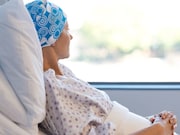No change seen in risk for hospital-acquired infections overall; benefit seen for those with medical devices
WEDNESDAY, March 13, 2019 (HealthDay News) — Daily bathing with chlorhexidine plus nasal mupirocin in carriers for methicillin-resistant Staphylococcus aureus (MRSA) does not cut rates of hospital-acquired bacterial infections overall in non-critical care units, but benefit is observed in patients with medical devices, according to a study published online March 5 in The Lancet.
Susan S. Huang, M.D., from University of California in Irvine, and colleagues randomly assigned 53 HCA Healthcare hospitals (194 non-critical care units) to routine care or daily chlorhexidine bathing for all patients plus mupirocin for known MRSA carriers. The study consisted of a 12-month baseline period (March 1, 2013, to Feb. 28, 2014; 189,081 patients), a two-month phase-in period (April 1, 2014, to May 31, 2014), and a 21-month intervention period (June 1, 2014, to Feb. 29, 2016; 156,889 patients in the routine care group and 183,013 patients in the decolonization group).
The researchers found that for unit-attributable MRSA-positive or vancomycin-resistant enterococcus (VRE)-positive clinical cultures, the hazard ratio for the intervention period versus the baseline period was 0.79 in the decolonization group versus 0.87 in the routine care group. There was no difference in the relative hazard ratios (P = 0.17). Among patients with medical devices (e.g., central venous catheters or lumbar drains), there was a 30 percent decrease in bloodstream infections and a nearly 40 percent decrease in antibiotic-resistant bacteria, including MRSA and VRE, compared with rates seen in similar patients in the standard bathing arm. In the intervention group, there were 25 adverse events (<1 percent), all involving chlorhexidine and none involving mupirocin.
“The results of the Active Bathing to Eliminate Infection trial are already being incorporated into infection prevention efforts,” a coauthor said in a statement. “The HCA system is using this decolonization strategy as a best practice for patients with medical devices across our 179 affiliated hospitals.”
Copyright © 2019 HealthDay. All rights reserved.








